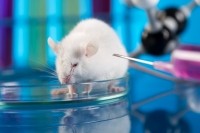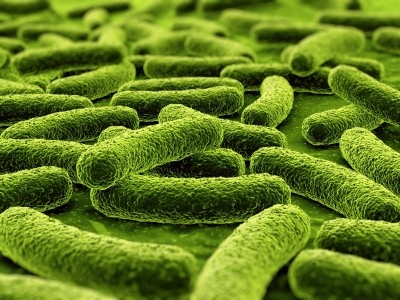Sleep on it: Supplements show circadian potential

"This discovery demonstrates the tight intertwining between circadian clocks and metabolism and opens new possibilities for nutritional interventions that modulate the clock's function," says senior study author Gad Asher of the Weizmann Institute of Science.
"Impaired circadian rhythmicity has been linked to a wide variety of age-related diseases, including cancer, Alzheimer's disease, Parkinson's disease, and inflammation."
What are polyamines?
Polyamines are ubiquitous molecules present in living cells with varied and wide ranging functions. They are involved in virtually all metabolic reactions either directly or indirectly, and are important for normal physiology, and cell growth, survival and proliferation.
Our bodies synthesise polyamines from amino acids and gut microflora, or derive them from foods such as soybeans, green tea, mushrooms and fermented foods. Cellular levels are tightly regulated and must be maintained within a narrow physiological range.
Study details
During their initial research on mice and cultured cells, Asher and his collaborators showed a number of complex interactions between polyamines and circadian clocks. They found that polyamine biosynthesis is regulated by clock and feeding-dependant mechanisms, and that polyamines in turn modulate the circadian period by regulating interaction between clock proteins.
Next, the researchers decided to see what the effect of pharmacological/nutritional modulation of polyamines was in mice. They firstly confirmed that polyamine levels decrease with age by testing spermidine (a polyamine) levels in young and adult mice, and found a longer circadian period with lower levels, which backed up cell culture results.
To further investigate causality Asher and his colleagues treated one group of young mice with a drug that inhibits polyamine synthesis and fed them a low polyamine diet, and another group of adult mice were given drinking water with added spermidine. The results showed that polyamine depletion lengthened the circadian period in young mice by 11 minutes and shortened it by eight minutes in polyamine-supplemented adult mice.
Marginal sleep gains
The effects on mice were less pronounced than in the cultured cell experiments due to the fact that mice can regulate these compounds physiologically, and were also able to replenish their polyamine stores even on a low polyamine diet. However, even small alterations in the circadian clocks have been associated with metabolic and age-related disease.
"Our findings basically rely on experiments with mice, and if they hold true in humans, they will have broad clinical implications," Asher says. "The ability to repair the clock simply through nutritional intervention, namely polyamine supplementation, is exciting and obviously of great clinical potential."
But Asher urges caution for now, advising not to rush out to source polyamines. “Even if one consumes high amounts of polyamines, similar to many vitamins, an excess of them will simply not be absorbed or will be secreted in the urine unless the body is in need of them," he said.
"But I do envision testing polyamines in clinical trials as a tool against a wide variety of age-related diseases in humans. There is evidence in flies and mice that polyamines extend lifespan, and future studies might also support the use of polyamines in humans."
Source: Cell Metabolism
Published online ahead of print, doi: 10.1016/j.cmet.2015.09.011
“Circadian Clock Control by Polyamine Levels through a Mechanism that Declines with Age”
Authors: Z. Zwighaft et al.















